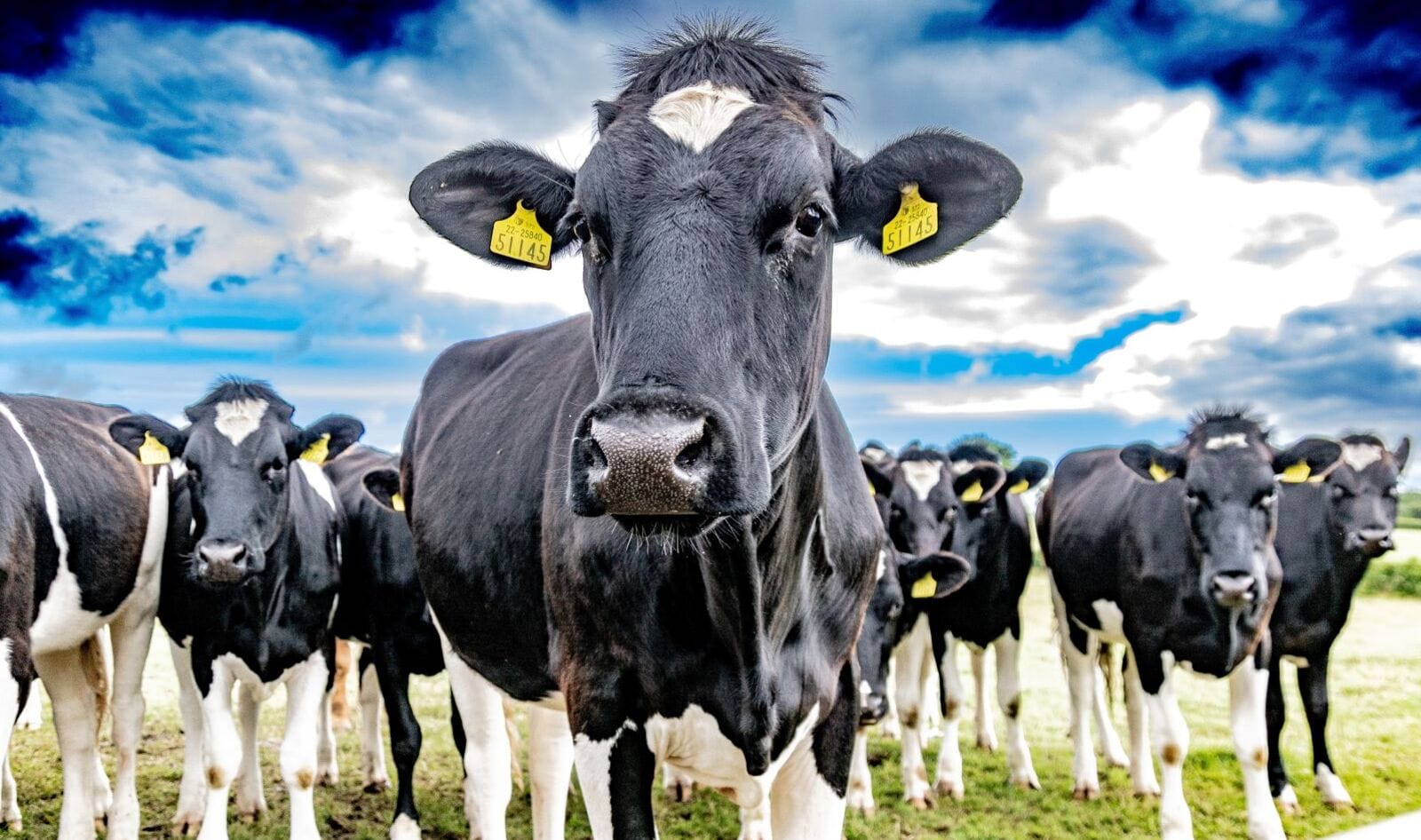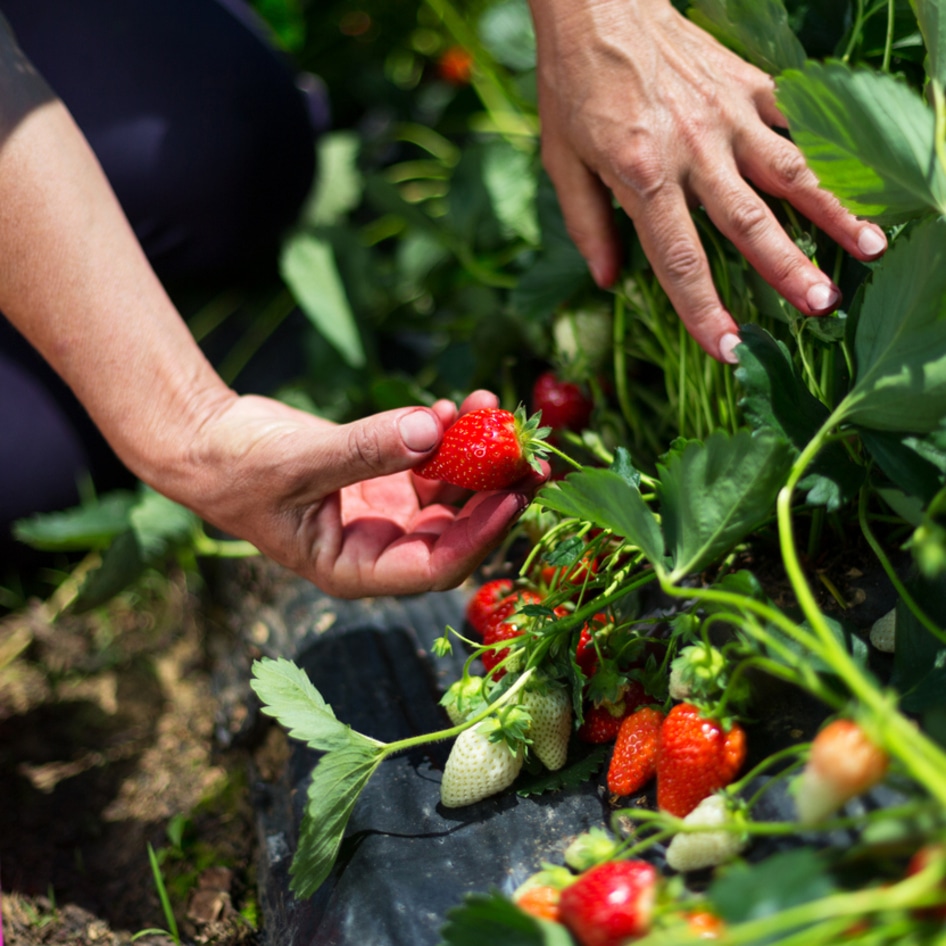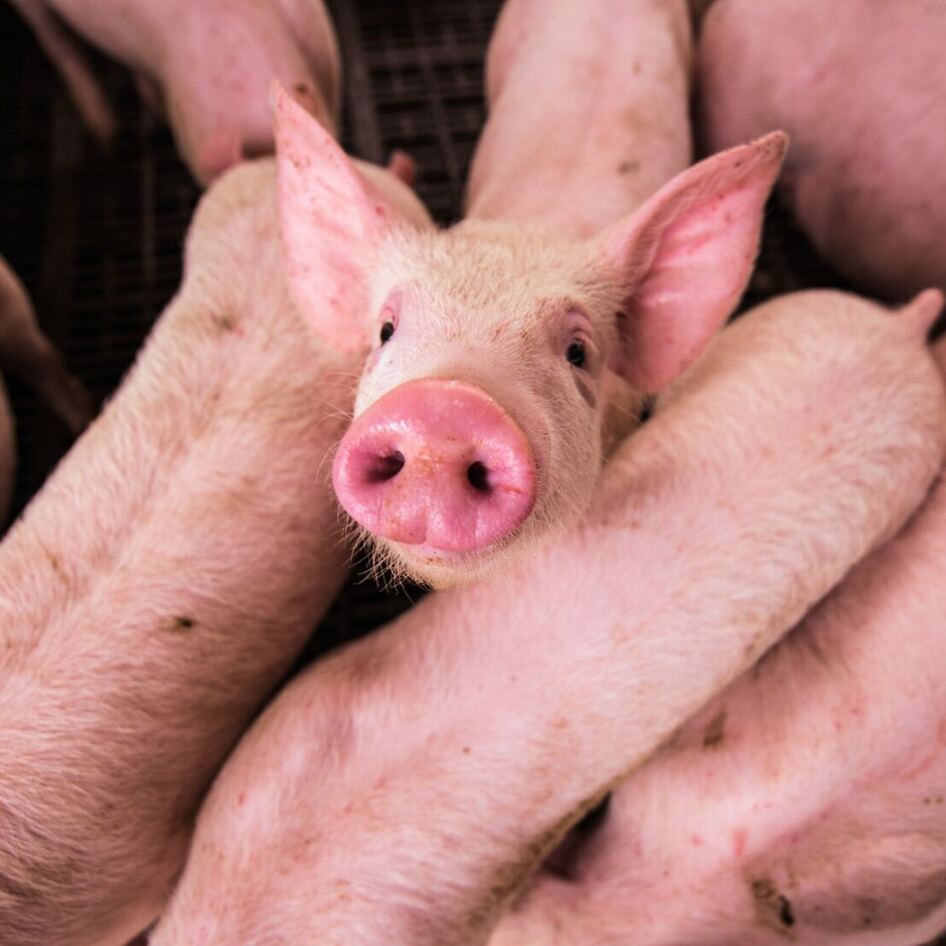In a study published in CABI Reviews, scientists have unveiled a comprehensive analysis of the effects climate change is having on animal welfare. The research, led by Edward Narayan, PhD Senior Lecturer of Animal Science at The University of Queensland in Australia, highlights the “multi-faceted” impact of climate change, resulting in “cascading effects” across five critical animal welfare domains: nutrition, environment, behavior, physical health, and mental health.
The study emphasizes the urgency of identifying immediate and future priorities to protect animals used for food, as well as companion animals and those in conservation efforts in nature reserves and zoos.
Animals who are particularly vulnerable to the impacts of climate change include chickens and cows used for dairy, bats, zebrafish, stony creek frogs, koalas, and African elephants.
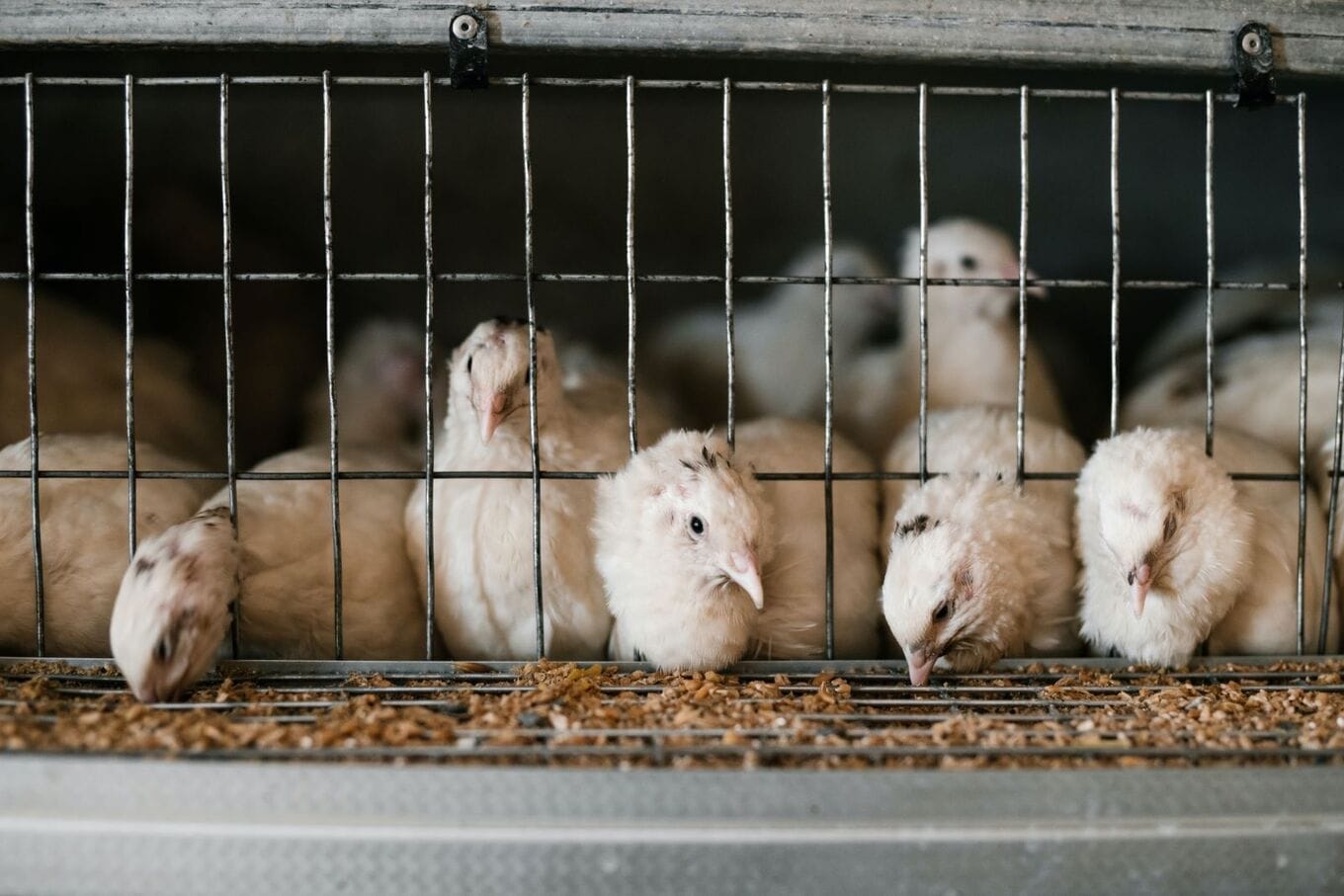 Arthouse Studio/Pexels
Arthouse Studio/Pexels
Narayan and his team stress that while animals may respond differently to stress biologically, the five domains model offers a robust tool for researchers to evaluate the effects of climatic variability on animals.
Their research provides a broad overview of the impact of climate change on animal welfare, drawing examples from diverse animal groups, including wildlife and domesticated species.
How climate change impacts cows
It is no secret that the way food is produced around the world—particularly when it comes to animal agriculture—has a major impact on the environment. But one striking finding of the study is the negative impact of heat stress on cows exploited for dairy, which has resulted in a significant 35 percent reduction in milk production. Heat stress also affects the cows’ lactation performance, immune function, and calf health.
Another concerning revelation from the study is the adverse effect of warmer conditions on broiler chickens. Birds, especially mature broilers, struggle under hot conditions due to their limited capacity for heat regulation, which involves panting, limiting activity, and increased water intake.
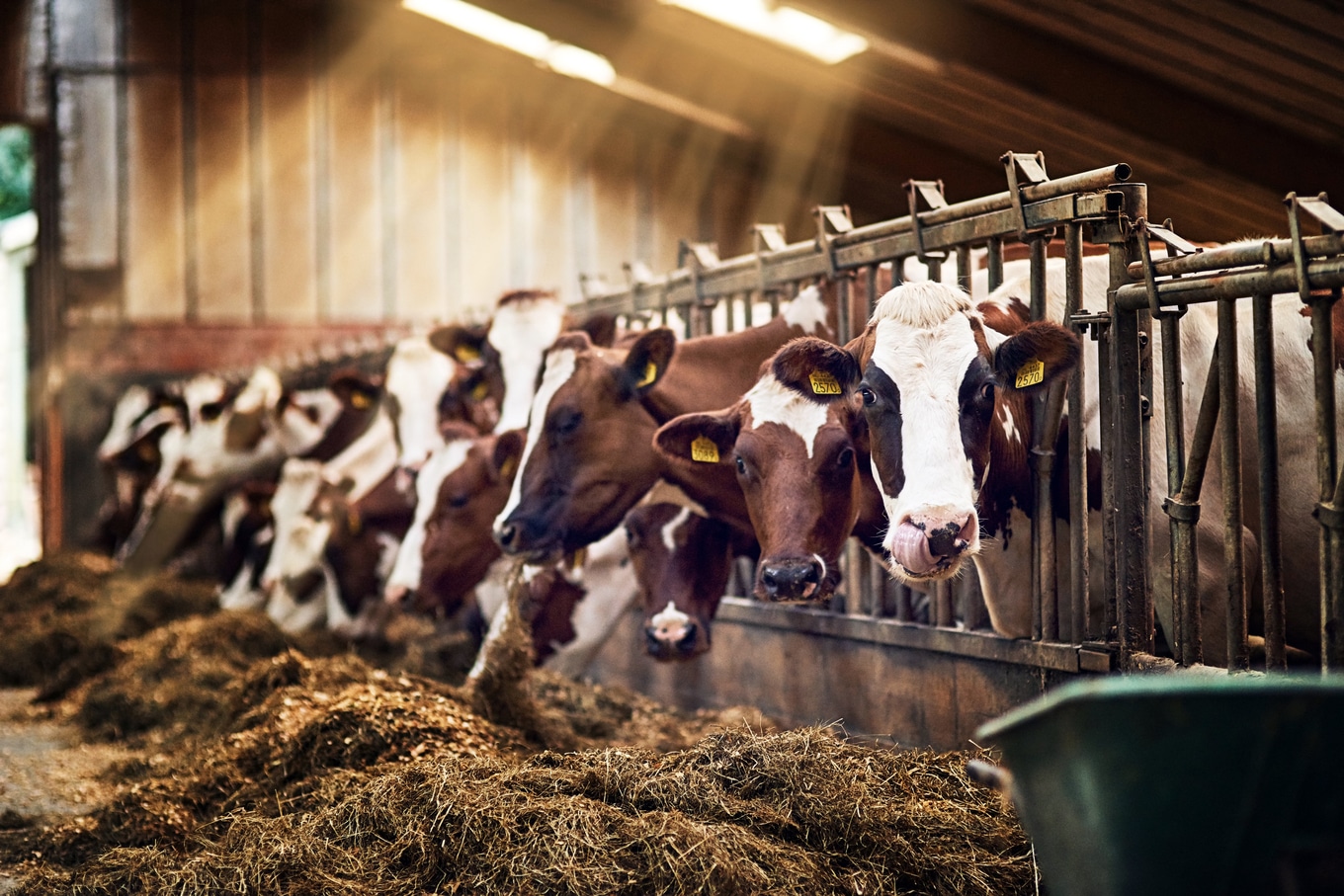 Getty
Getty
While the researchers suggest employing mitigation strategies such as monitoring animals’ activity and rumination time, and using sunshades, sprinklers, and air conditioning units to keep the animals cool, experts have long questioned the use of animals for food given the industry’s significant contribution to the very problem of climate change.
One recent study found that over the last 20 years (from 2000 to 2019), food-related greenhouse gas emissions increased by 14 percent, and animal-derived foods was responsible for 95 percent of these increased emissions, with beef and dairy accounting for 32 percent and 46 percent, respectively.
The cascading effects on wildlife
In addition to affecting farmed animals, the new animal welfare research also highlights that drought and resource scarcity contribute significantly to the mortality of elephants, particularly African elephants, as they require vast amounts of food and water daily. With more frequent and predictable droughts, the availability of water and vegetation declines, leading to elevated elephant mortality rates.
The study also sheds light on the impact of climate change on marsupials, like the koala, which experience increasing energy expenditure to maintain body temperature in higher mean temperatures. The quality of their food sources is reduced due to climate change projections, posing a significant threat to their population.

Even domestic animals such as cats and dogs are not immune to the effects of climate change. The study suggests that certain dog breeds are susceptible to heat stroke, and heat-related diseases are a leading cause of death in military working dogs.
The increasing global temperature also impacts dog welfare, as 87 percent of human companions report exercising their dogs less during hot weather, leading to potential health issues and changes in the role of dogs in human society.
Climate effects of animal agriculture
The study’s findings emphasize the critical need for immediate action and informed policies to protect animals from the catastrophic consequences of climate change. However, when it comes to animal agriculture, a growing body of research shows that raising animals for food—be it meat, eggs, or milk—is much more environmentally damaging than growing plants.
In fact, rising temperatures have disrupted industrial animal agriculture in other ways.
Last year, for the first time in its 2,000-year history, a French dairy cheese company could no longer produce its cheese in France. That’s because drought conditions brought on by the climate crisis made the production of this specific cheese impossible.
Under its appellation d’origine protégée (or certification of authenticity), Salers cheese must be produced from the milk of cows who graze on grass in the Auvergne region of France.
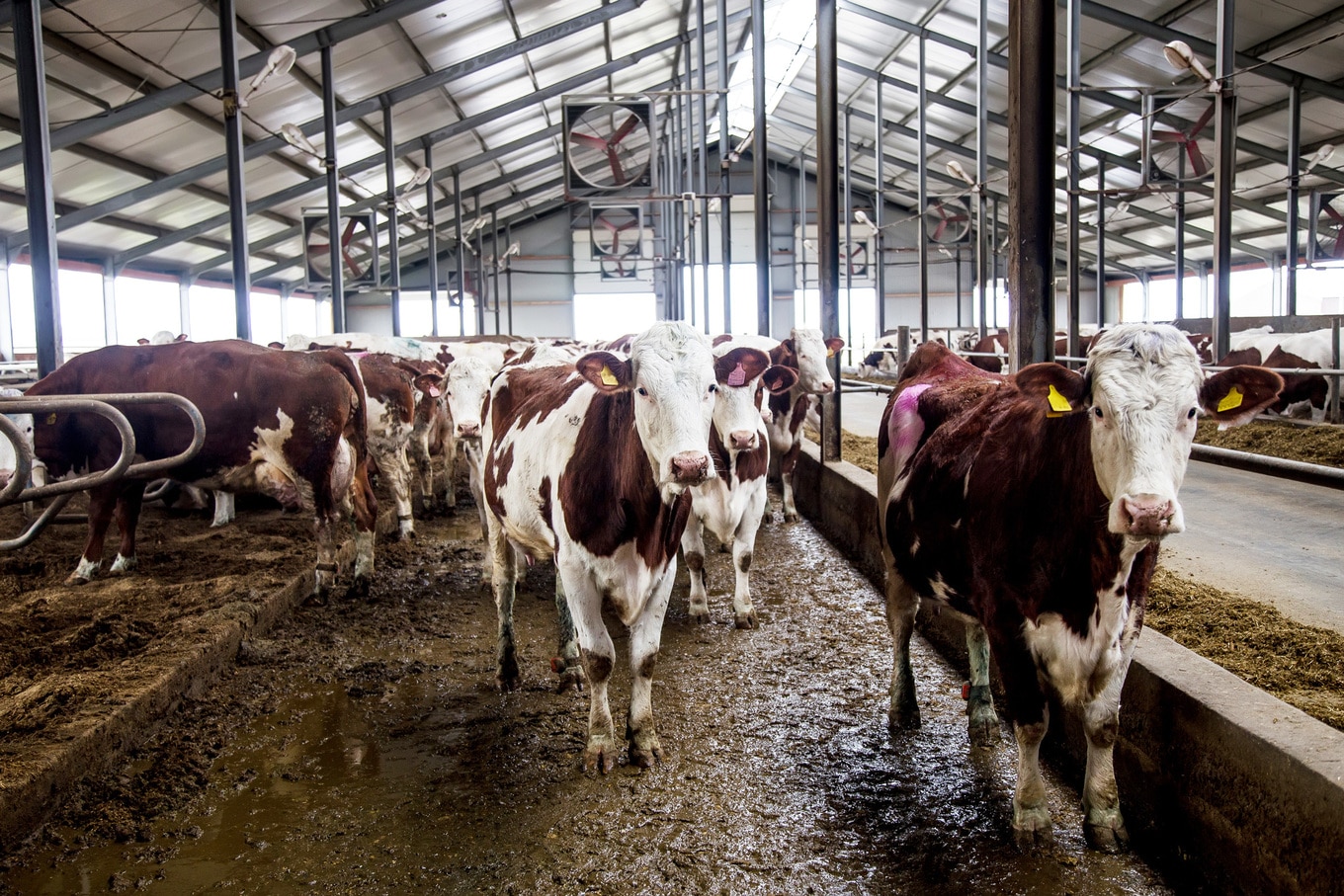
And yet the extraordinarily high summer temperatures have made green grass a scarcity in the region, making it impossible for most of the 76 farmers in the region to meet the requirements for making Salers cheese, which must contain at least 75-percent milk from cows who graze on local grass.
Last year, the Intergovernmental Panel on Climate Change (IPCC) released a report that warned that humanity is running out of time in halting the worst of climate change. The report advises that methane emissions—much of which come from animal agriculture—must be slashed by one-third by 2030 in order to save the planet. The report also urges governments around the world to focus on shifting consumption habits away from animal agriculture.
“We are at a crossroads,” IPCC Chair Hoesung Lee said in a statement. “The decisions we make now can secure a liveable future. We have the tools and know-how required to limit warming.”
For the latest vegan news, read:
JUMP TO ... Latest News | Recipes | Guides | Health | Shop

